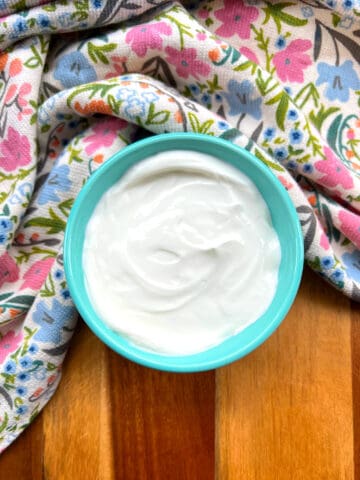They’re great as a snack, as garnishes, and as an ingredient in savory dishes, but what if you have a bit too many? Can you freeze olives?

Evidence suggests that humans have been cultivating olives for more than 6,000 years. And over that time, more than 100 different types of olives have been developed — from Kalamata olives to Nicoise to Cerignola.
Today, we use them in all sorts of ways. They’re a staple in Mediterranean cuisine and are the basis of sauces like puttanesca or in tapenades. They’re also delicious on veggie skewers and nachos. And they make a great addition to charcuterie boards.
But what’s the best way to store them for extended periods of time? Can you freeze olives, or will that impact their taste and texture?
It turns out you can freeze olives. You just need to follow a few steps to make sure you’re storing them properly. In most cases, they’ll keep for up to 6 months in the freezer.
Read on to find out the best freezing methods, and how to thaw them out without sacrificing texture or taste.
Jump to:
How to freeze olives
Use this simple step-by-step guide for freezing olives.
Step 1 – Whether you buy fresh olives or you get them in a can, they’re usually packed in a brine. This cures them to remove bitterness after harvesting and to preserve them. So first you want to rinse the brine off using a colander. Then pat dry olives with a paper towel.
⭐️ If your olives aren’t brined, it’s a good idea to do so before you freeze them. This will help preserve their texture. See below for how to do it.
Step 2 – Place the olives in an airtight container or resealable, heavy-duty freezer bag, removing as much air as you can. This will help prevent freezer burn and oxidation.
Step 3 – Label the container or bag with the date.
Step 4 – Place the container on a level shelf in the freezer. If you’re using a freezer bag, make sure nothing is on top that might crush the olives.
This method works with olives of any kind.
💡 Pro tip: If you’re freezing a lot of olives, consider separating them into smaller portions. That way, you only need to defrost the amount you intend to consume.

How to brine olives and freeze them
If you need to freeze fresh olives that haven’t been brined, consider giving them a quick brine beforehand. This will help limit any texture change during storage so they don’t end up mushy afterward. Here’s how to do it:
- Create the olive brine using water and salt. Add 6 cups of water to a large pot and bring to a boil. Then add 3 tablespoons of salt (or about 1.5 ounces of salt) and stir to dissolve.
- Add the olives to a separate pan and pour the brining liquid over them. Boil for 10 minutes.
- Remove the brine by draining the pot. Then rinse the olives with cold water. Pat dry.
- Once they’re dry, simply put them in an airtight container or freezer bag, label it with the date, and pop them in the freezer.
How to thaw out olives
When you’re ready to thaw out your olives, the best way is to do it slowly, in order to preserve their texture and flavor.
Simply move the frozen olives to the fridge and let them defrost. It will take several hours, so you could transfer them the night before and they should be ready by the following morning.
Avoid trying to thaw them in the microwave or leaving them out at room temperature, as these methods can harm the texture of the olives, and make them unpleasant to eat. No one wants to eat soggy olives!
What’s the best way to use olives after freezing them?
Depending on the quality of the olives, more savory ones tend to retain their flavors better after freezing.
However, even if you do everything right during the freezing process, the texture and signature salty taste of olives can still change after they’re thawed out.
A great way to overcome that is to use them in other dishes, rather than simply adding them to a charcuterie board or eating them on their own.
So, try using thawed olives in a sauce, as a pizza topping, in nachos, or in pasta dishes. This will still let the flavor of the olives come through even if the texture has been affected a bit by freezing them.
Should you refreeze olives?
Refreezing leftover olives is not recommended. While olives can freeze well the first time, they often do not hold up to multiple freezings.
That’s because repeated freezing and thawing take a toll on their texture, resulting in soft, mushy olives.
If you have olives that are stuffed with things like anchovies, repeatedly warming them up can also significantly harm the texture and taste. And you run the risk of contracting food-borne illnesses as the olives are subjected to wild swings in temperature change.
How long can you store olives?

If you don’t plan on using olives you’ve bought for a while, you may not have to freeze them at all. Brined olives have a pretty long shelf life.
An unopened jar of olives in their own brine can keep for up to 2 years in a pantry or other cool, dark place.
They can last up to 18 months in the fridge after they’re opened. Just be sure to close the lid on the jar tightly.
If they don’t have a brine, they will only stay fresh for a few days.
FAQ
Yes, you freeze both black and green olives the same way. They will freeze well for up to 6 months in a freezer bag or other airtight container.
Yes, you can freeze canned olives. Since they only last a few weeks in the fridge after opening, freezing can be a good long-term storage solution. Simply rinse them off and let them dry. Then freeze them in an airtight container or freezer bag.
Stuffed olives can be frozen the same way you freeze other olives — by rinsing beforehand and storing in an airtight container. This works best with olives that are stuffed with pimento red peppers or anchovies, rather than cheese, as freezing cheese can harm its texture.
More food storage answers
Wondering if you can freeze some of your other favorite foods. Tap the posts below.






Leave a Reply